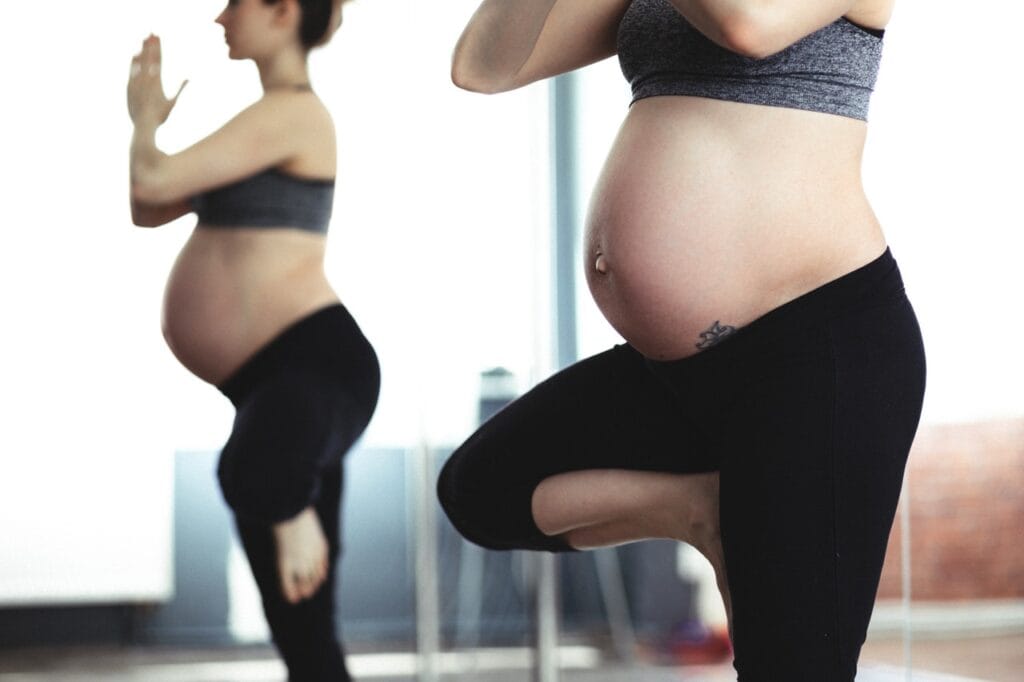Many women, and especially expectant moms, will probably have heard of a kegel exercise.
These somehow mysterious but well known exercises are touted as a cure all technique for managing a range of unfortunate side effects of childbirth, including incontinence, weakened pelvic floor, and hernia.
However, there has been recent controversy surrounding kegel exercises for pregnant women, as they might actually create more complications than they solve for some moms to be.
So should you do kegels or not when you’re expecting?
There are several different factors to take into account when considering kegels during your pregnancy. Read on to find out whether this exercise should be a part of your pelvic floor physio.

What is a Kegel exercise?
First up, we should discuss what a kegel exercise actually is.
A kegel is a controlled contraction and relaxation of your pelvic floor muscles, named after American gynaecologist Arnold Kegel who developed the technique in 1948. While these exercises were originally intended for the treatment of “genital relaxation”, they have since become the first line of defence in fighting urinary stress incontinence, bladder control, and genital prolapse.
When indicated (please get checked out by a pelvic floor physio first!) Kegel exercises may be incorporated into a pelvic floor physio routine and be performed several times a day for several minutes, for around three months before results can be noticed.
Let us help you.
Our gifted physiotherapists can help you feel better.
How do you do a Kegel exercise?
Knowing what a kegel exercise is and how to perform them are two very different things.
Many online blogs will make it seem incredibly easy to figure out what exactly your pelvic floor muscles are and what it feels like when you contract them. Spoiler alert – it’s not.
The best way to try to figure out what a kegel feels like is to imagine that you’re picking up a blueberry with your perineum. Remember – your perineum is the space between your vagina and your anus. So try to bring these two body parts together, and visualize picking up a blueberry with your perineum while you’re doing it.
It’s actually much harder than it sounds! Most of us have a hard time doing a kegel properly – we think we’re doing a kegel, but in reality, we aren’t.
This is why it’s imperative to see a pelvic floor physiotherapist before getting started with them (to find out if you even need to do them!). Your therapist can help you identify a) whether you need to do them, and b) whether you’re doing them right!
Should I do Kegel exercises during pregnancy?
The controversy surrounded kegels arises when it comes to their importance in pelvic floor physio during pregnancy.
While kegels have been shown to help expecting mothers maintain control of their bladders during pregnancy, and help potentially avoid some of the more unpleasant side effects of childbirth, they can actually be harmful to you if your pelvic floor muscles are already too tight. Much like any of your other muscles, their main function is to contract and relax in order to effect appropriate motion. If the muscle remains constantly contracted, it won’t be of much use and can hinder your ability to use the muscle effectively.
Muscle like a tense muscle in your back or legs, an overly tense pelvic floor is not beneficial and can cause pain or difficulty pushing during labour. In this instance, it is recommended to perfect a reverse kegel before attempting normal kegels.
Reverse Kegels
A reverse kegel is essentially the opposite motion of a normal kegel.
Also known as a “pelvic floor drop”, a reverse kegel can be likened to the relief you feel when you finally get to use the bathroom after holding it in for a long time. Learning how to loosen and relax your pelvic floor is equally as important as mastering contractions, as it allows a full range of motion. This is crucial during childbirth, as you will need to both push and relax for an easier and more efficient labour.
Are you looking to develop a personalized pelvic floor physio plan for your pregnancy? Oona is the leading provider of guided kegel exercises for pregnancy in Toronto. Our highly experienced team works with each new Mama to develop a plan that suits their pelvic floor tightness, and recommends a balanced approach with kegels and reverse kegels to ensure optimum pelvic floor performance. Contact us today to find out how we can help you.










